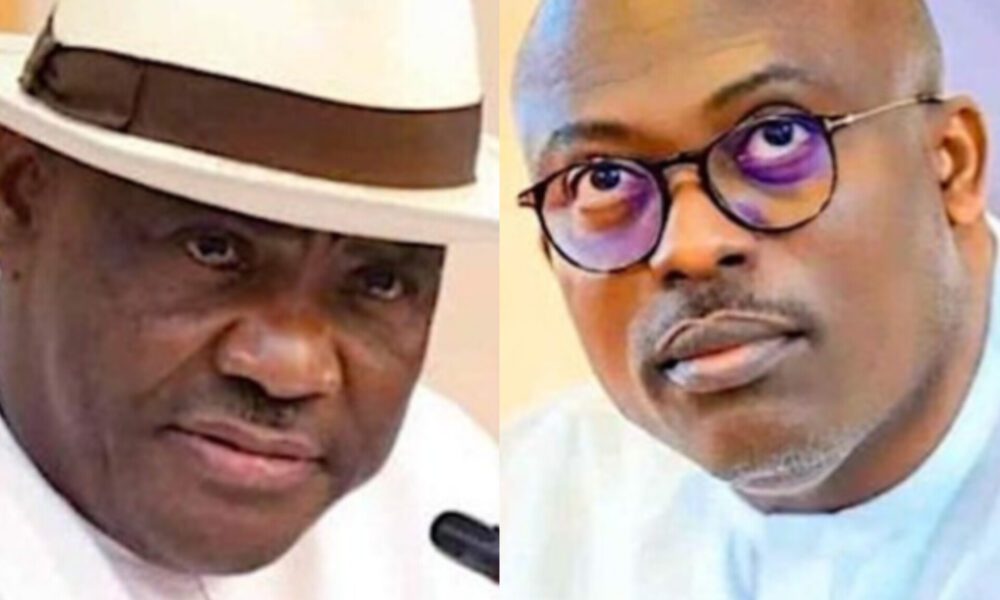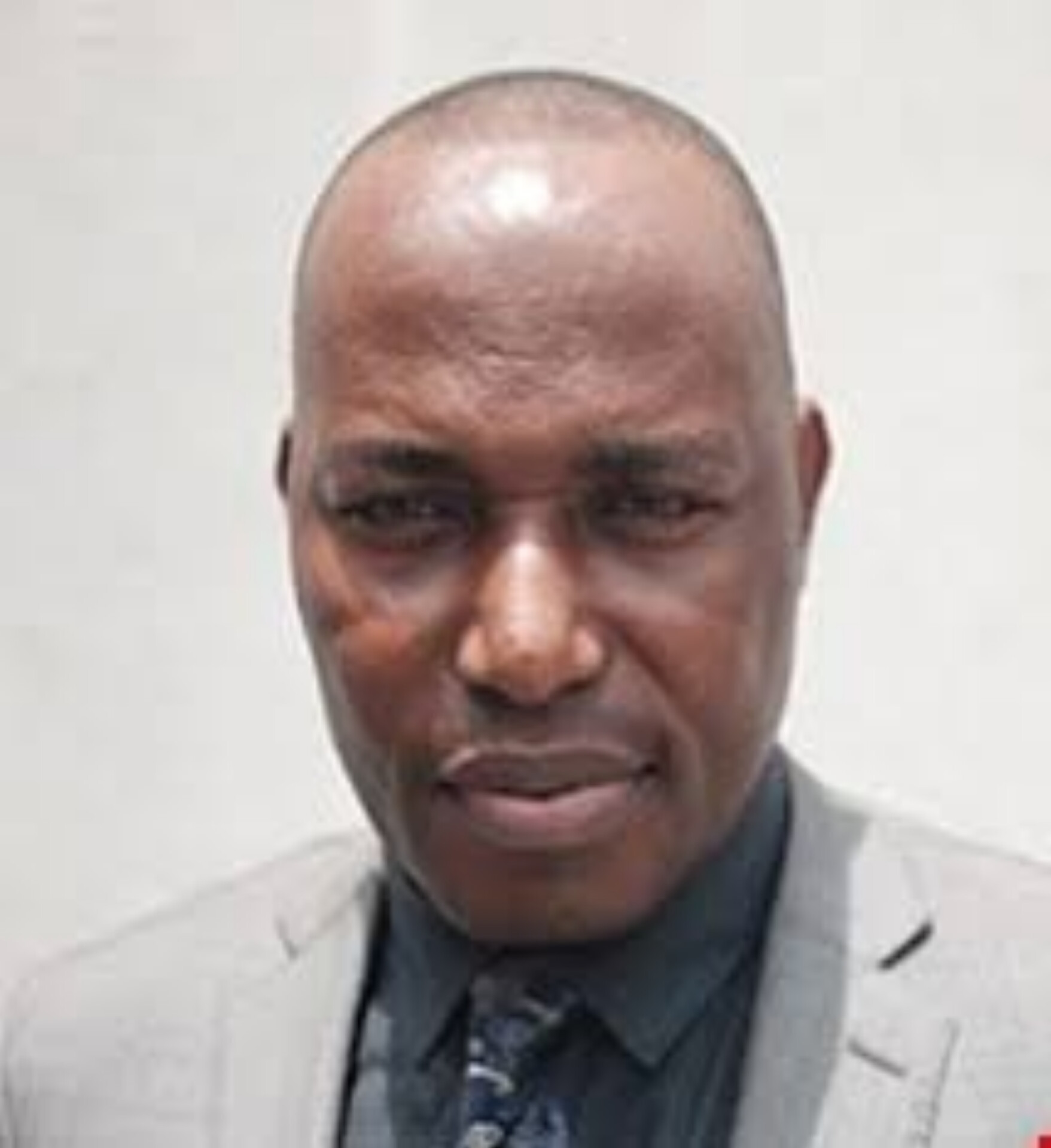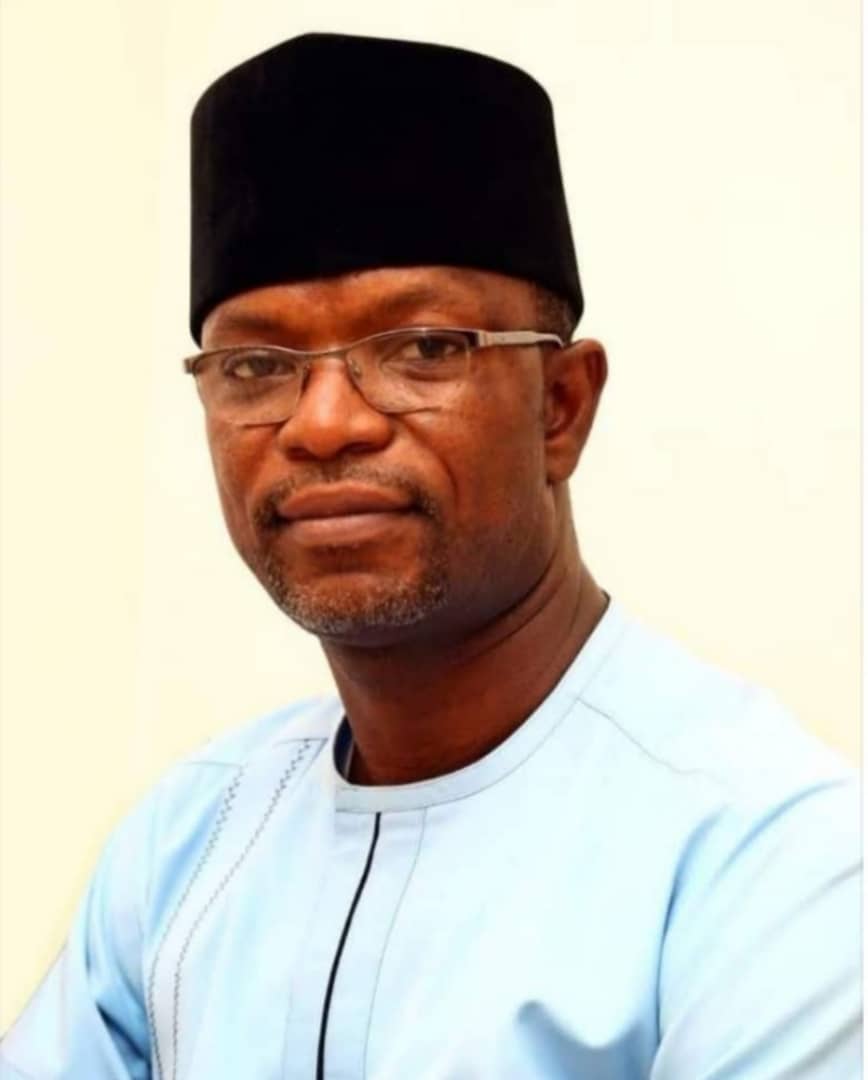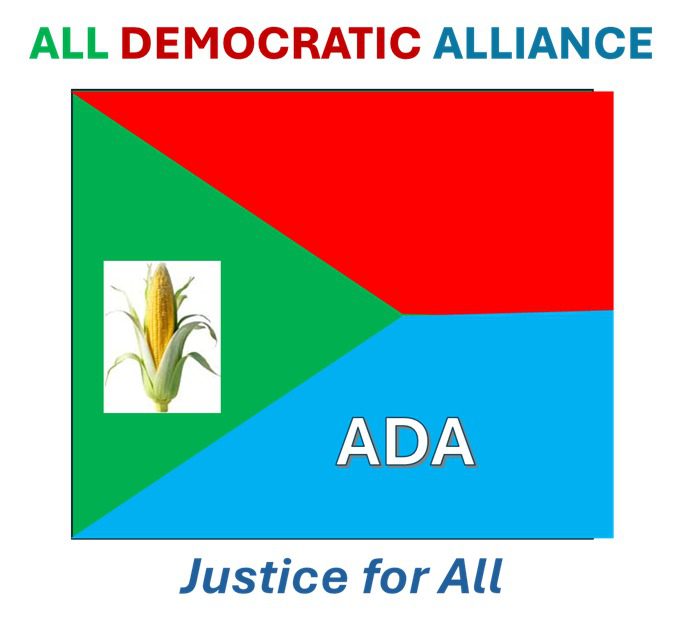By Ehichioya Ezomon
It’s certainly hitting the bull’s eye by declaring in the sixth installment of this header on Monday, June 10, 2024 – and indeed, as shown in the threads so far – that the Rivers “problem” between Governor Siminalayi Fubara and ex-Governor Nyesom Wike “is like the unending story of the tortoise, and has defied the dictum, ‘There’s end to litigation,’ hence cases terminate at the Supreme Court.”
A Port Harcourt high court’s ruling on Monday, June 10, 2024, has borne witness to that declaration! Against partisan expectation, the court validated the 25 pro-Wike lawmakers’ seats on grounds that, while their names remain in the membership register of the Peoples Democratic Party (PDP), there’s nothing before the court to show that the “defectors” had registered as members of the All Progressives Congress (APC).
Twenty-seven of the 32-member (including a vacant seat) Rivers State House of Assembly defected from the PDP to APC on December 11, 2023. However, two of the decampees recanted and returned to the PDP on December 14, 2023.
Citing their “defection” as in breach of the amended 1999 Constitution of Nigeria, five members loyal to Fubara, headed by “suspended” House Leader Edison Ehie, moved against the Speaker Martin Amaewhule-led 25 lawmakers, and announced Ehie as “Speaker,” who declared the 25 lawmakers’ seats vacant. When Ehie resigned from the post and the House, a three-member legislature, under Speaker Victor Oko-Jumbo, redeclared vacant the 25 pro-Wike lawmakers’ seats.
This is the background to the June 10 judgment of the Port Harcourt high court, which held that the 25 lawmakers remain bonafide members of the PDP and Rivers Assembly, and that Rt Hon. Amaewhule retains the gavel, with which he’d sanctioned, into law, several bills Fubara had vetoed, as “not enacted by a duly-constituted House of Assembly.”
The ruling – which’s temporarily screeched the seemingly autopilot gains by Fubara in the supremacy battle with Wike – stemmed from “a suit by Hycenth Amadi & others versus Martin Chike Amaewhule & 26 others, the Governor of Rivers State, the Attorney General of Rivers State and Rivers State House of Assembly,” questioning the 25 lawmakers’ continued membership of the assembly, having defected to the APC.
But presiding Justice Okogbule Gbasam held that it could not be proved that Amaewhule and 24 other lawmakers had decamped to the APC, as the claimants failed to prove that, “the names of Amaewhule and the 24 other lawmakers are now in the membership register of the APC.”
Noting the claimants’ allegation, and failure to prove same, the court held that it “cannot rely on newspaper and electronic media publications as enough evidence,” as “a party’s register or membership card – and not television ceremonies and/or verbal statements – are the only acceptable proofs of party membership.”
Declaring that the lawmakers “are (still) members of the PDP since their names are in the PDP’s membership register, as provided by the party,” the court ruled that the members “never lost their seats and everything they did were (was) valid,” and ordered that, “Governor Fubara must comply with all the laws passed by the lawmakers.”
Therein comes the bombshell, as Fubara, using a minority of five and then three lawmakers, had vetoed several bills passed by the majority 25 lawmakers, who, in turn, had overriden the governor’s vetoes, and sanctioned the bills into law, including the one that extended – beyond June 2024 – the tenure of local government chairmen by six months until democratically-elected officials were installed in the local councils.
So, the minority lawmakers loyal to Fubara, having declared the pro-Wike members’ seats vacant, gave alibis for courts in Rivers and Abuja to rule that the 25 legislators lost their seats on account of “defection” from the PDP to APC.
For instance, Justice CN Wali of a Rivers high court, who’d affirmed the revoking of the 25 lawmakers’ seats by separate minority lawmakers, ruled on May 30, to reassert his May 10 order, “prohibiting the Governor, Attorney-General, and Chief Judge from having any dealings with the lawmakers in question,” based on an ex parte motion by the three-man lawmakers of Speaker Oko-Jumbo, Sokari Goodboy and Orubienimigha Timothy.
Granting an interlocutory injunction arising from the lawsuit that names the 25 lawmakers as 1st to 25th defendants, and the Rivers State Governor, Attorney-General, and Chief Judge as the 26th to 28th defendants, the court said:
“An order of interlocutory injunction is granted restraining the 1st to 25th defendants from parading and holding out themselves as members of the Rivers State House of Assembly and/or meeting/sitting at the Auditorium of the House of Assembly Quarters located at off Aba Road Port Harcourt or at any other place whatsoever to purport to carry out the legislative business of the Rivers State House of Assembly, their legislative seats having been declared vacant pending the hearing and determination of the substantive suit.
“An order of interlocutory injunction is hereby made restraining the 26th to 28th defendants from dealing with, interfacing, accepting any resolutions, bills and/or however interacting with the 1st to 25th defendants in their purported capacities as members of the Rivers State House of Assembly, their legislative seats having been declared vacant with effect from 13th December 2023, pending the hearing and determination of the substantive suit.” The court then adjourned the case to July 1, 2024, for mention.
Fubara, “picking and choosing” which court verdicts to obey, has kicked against the June 10 ruling affirming the 25 lawmakers as bonafide members of the Rivers Assembly and state’s ruling PDP; and via a press conference by his Attorney-General and Commissioner for Justice, Dagogo Iboroma (SAN), denied Amaewhule and the 24 lawmakers as members of the PDP and Rivers Assembly. Below are excerpts from the briefing to the Press:
“As you all know, Martins Amaewhule and 26 others defected from the Peoples Democratic Party to the All Progressives Congress on the 11th Day of December, 2023, and stated that much in affidavit evidence deposed to by Martins Amaewhule for himself and on behalf of 26 others in Suit No. FHC/ABJ/1681/CS/2023 before Hon. Justice Donatus Okorowo of the Federal High Court, Abuja Division. The Suit is still pending in court.
“By Section 272(3) of the 1999 Constitution, as amended, it is only the Federal High Court that can determine whether Martins Amaewhule and 26 others are still members of Peoples Democratic Party and also members of the Rivers State House of Assembly. This much was held by the trial court.
“However, you will recall that this (there) is a subsisting order of interlocutory injunction in Suit No.PHC/512/CS/2024 restraining Martins Amaewhule and his co-travelers from further parading or presenting themselves as law makers in Rivers State pending the determination of the substantive suit, which has not been appealed against till date.
“We urge the public to disregard the news presently making rounds in social, print and electronic media to the effect that Martins Amaewhule and 26 others have been declared as members of the Peoples Democratic Party and the Rivers State House of Assembly.”
Interesting that Iboroma aprobates and reprobates at the same time! On one hand, he says, “it is only the Federal High Court that can determine” whether Amaewhule and 24 others are still members of the PDP and Rivers Assembly.
On the other hand, Iboroma craves compliance with “a subsisting order of interlocutory injunction” (by a Rivers high court) in Suit No.PHC/512/CS/2024, “restraining Martins Amaewhule and his co-travelers from further parading or presenting themselves as law makers in Rivers State pending the determination of the substantive suit.”
Has the Fubara government obeyed, appealed or vacated the order(s) of the Federal High Court, Abuja, presided by Justice Kolawole Omotosho, which ruled on Monday, January 22, 2024, that the Amaewhule-led lawmakers were bonafide members of the Rivers Assembly “pending the determination of the substantive suit?”
The Justice Omotoso ruling has two important aspects: First, it sets aside the 2024 Rivers N800bn budget because, “both the presentation and passage of the appropriation amounted to nullity, and a wilful breach of the court order made on November 30, 2023.”
Second, it restrains Governor Fubara “from frustrating the Amaewhule-led Rivers Assembly from sitting or interfering in its constitutional and legislative functions,” and “barred the National Assembly, the police and any member of the state executive arm from interfering in the assembly’s affairs.”
Similarly, a Federal High Court, Abuja, on Tuesday, January 30, dismissed a suit seeking to stop Governor Fubara from re-presenting the Rivers N800bn 2024 budget, as Justice Joyce Abdulmalik, taking judicial notice of Justice Omotoso’s ruling in a similar suit, set aside her interim order granted to the plaintiffs, who claimed that President Bola Tinubu, Governor Fubara and the Rivers House of Assembly “have no right nor entitled to enter into any agreement that has the effect of nullifying or undermining the provisions of Section 109(I)(g) and (2) of the 1999 Constitution (as amended).”
Section 109(1) talks about, “A member of a House of Assembly shall vacate his seat in the House if (g) being a person whose election to the House of Assembly was sponsored by a political party, he becomes a member of another political party before the expiration of the period for which that House was elected:
“Provided that his membership of the latter political party is not as a result of a division in the political party of which he was a member or of a merger of two or more political parties or faction of one of which he was previously sponsored.
And Section 109(2) says that, “The Speaker of the House of Assembly shall give effect to subsection (1) of this section, so however that the Speaker or a member shall first present evidence satisfactory to the House that any of the provisions of that subsection has become applicable in respect of the member.”
Governor Fubara and his government have chalked up “victories” from “forum-shopping suits” emanating from the Rivers political crisis, with the Wike camp looking askance and downcast, even as he tried lately to juice up the 25 lawmakers’ belief and confidence that, “nobody can remove you as a lawmaker.” The Wike prediction is ominous!
Hence Fubara’s concerns about the June 10 Port Harcourt high court ruling in the suit, which Iboroma panned as being struck out “for want of locus standi” (by the claimants), and “also for being an abuse of court process, which robbed the trial court of jurisdiction to adjudicate on the matter.” The validation of the 25 lawmakers’ membership of the PDP and Rivers Assembly directly challenges all the actions – in governance – taken by the Fubara administration since the political crisis began about October 2023.
Sustaining the lawmakers’ membership of the two bodies will not only pull the rug from under Fubara’s feet, but also return him to the starting point of the crisis, where and when the Wike camp had the upperhand with his fiercely loyal 25 lawmakers in full control of the Rivers Assembly!
No one – not even Fubara with “all the powers of State” – would want to be in such a reversed situation that threatens their political career and re-election in 2027! Let’s watch and wait, as the Port Harcourt high court has adjourned the case to July 1, 2024, for mention!
Mr Ezomon, Journalist and Media Consultant, writes from Lagos, Nigeria





